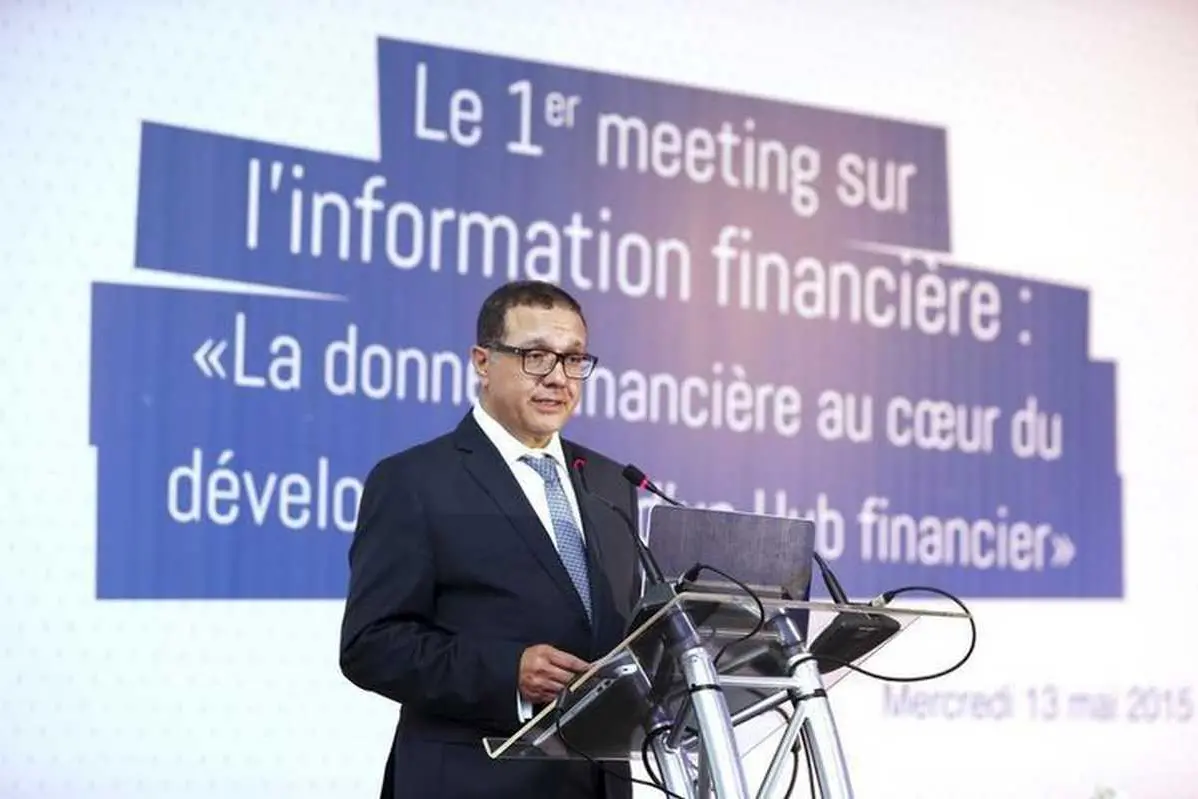PHOTO
MARRAKECH, Morocco - Morocco has no immediate plans for more currency reforms as the dirham has remained stable under a new flexible exchange system, its finance minister said on Tuesday. The kingdom made the changes two weeks ago under free-market reforms recommended by the International Monetary Fund to protect the economy against external shocks and safeguard its reserves.
The dirham has hardly moved against major currencies since then, easing worries of a devaluation - the central bank had said it would move in to tackle speculators.
"Now after waiting so long and ten years of thinking and preparation we've begun the first phase," Finance Minister Mohammed Boussaid told Reuters on the sidelines of an economic conference in Marrakech.
"There will be of course more steps but the first was very reassuring and successful," he said. "The market has spoken and the dirham's fluctuation has stayed inside the range. It's very stable."
"Now we need to wait and study the results of the first phase," he added when asked whether there were any immediate plans for further reforms.
The new system has widened the band in which the dirham can trade against hard currencies to 2.5 percent either side of a reference price, from the previous 0.3 percent.
The central bank manages the dirham against a currency basket in which the euro has a weight of 60 percent and the dollar 40 percent.
GROWTH
The more flexible currency system will boost GDP growth this year by 0.2 percent on top of the previous forecast of 3.2 percent, Boussaid said.
Inflation will accelerate to 1.5 percent this year and the dirham move could add as much as 0.4 percent to it, he added.
Last year inflation was 0.2 percent, according to the High Planning Commission which collects economic data. GDP growth was 4 percent last year but officials have said a lower agricultural output due to less rain would weigh this year.
The budget deficit will be 3 percent in 2018, the minister said, down from 4 percent last year.
The more flexible exchange system will also have positive impact on Morocco's current balance as it would attract investment and guard the economy against shocks while facilitating exports, he said.
The kingdom, which has enjoyed stronger growth than other Arab counties as it escaped the turmoil and militant attacks seen in Egypt and Tunisia, could go to the international debt market but was in no hurry as it had plenty of financial options, he said.
"Possible. It's always possible," he said when asked whether a Eurobond issue was possible this year.
The government said two weeks ago it was seeking a new form of IMF precautionary line of credit.
In 2016, the IMF granted Morocco a two-year, $3.5-billion credit line to reassure its foreign lenders, investors and rating agencies, allowing it to tap international capital markets at morefavorable borrowing terms. (Reporting by Ulf Laessing; Editing by Andrew Heavens)
© Reuters News 2018
The dirham has hardly moved against major currencies since then, easing worries of a devaluation - the central bank had said it would move in to tackle speculators.
"Now after waiting so long and ten years of thinking and preparation we've begun the first phase," Finance Minister Mohammed Boussaid told Reuters on the sidelines of an economic conference in Marrakech.
"There will be of course more steps but the first was very reassuring and successful," he said. "The market has spoken and the dirham's fluctuation has stayed inside the range. It's very stable."
"Now we need to wait and study the results of the first phase," he added when asked whether there were any immediate plans for further reforms.
The new system has widened the band in which the dirham can trade against hard currencies to 2.5 percent either side of a reference price, from the previous 0.3 percent.
The central bank manages the dirham against a currency basket in which the euro has a weight of 60 percent and the dollar 40 percent.
GROWTH
The more flexible currency system will boost GDP growth this year by 0.2 percent on top of the previous forecast of 3.2 percent, Boussaid said.
Inflation will accelerate to 1.5 percent this year and the dirham move could add as much as 0.4 percent to it, he added.
Last year inflation was 0.2 percent, according to the High Planning Commission which collects economic data. GDP growth was 4 percent last year but officials have said a lower agricultural output due to less rain would weigh this year.
The budget deficit will be 3 percent in 2018, the minister said, down from 4 percent last year.
The more flexible exchange system will also have positive impact on Morocco's current balance as it would attract investment and guard the economy against shocks while facilitating exports, he said.
The kingdom, which has enjoyed stronger growth than other Arab counties as it escaped the turmoil and militant attacks seen in Egypt and Tunisia, could go to the international debt market but was in no hurry as it had plenty of financial options, he said.
"Possible. It's always possible," he said when asked whether a Eurobond issue was possible this year.
The government said two weeks ago it was seeking a new form of IMF precautionary line of credit.
In 2016, the IMF granted Morocco a two-year, $3.5-billion credit line to reassure its foreign lenders, investors and rating agencies, allowing it to tap international capital markets at morefavorable borrowing terms. (Reporting by Ulf Laessing; Editing by Andrew Heavens)
© Reuters News 2018





















